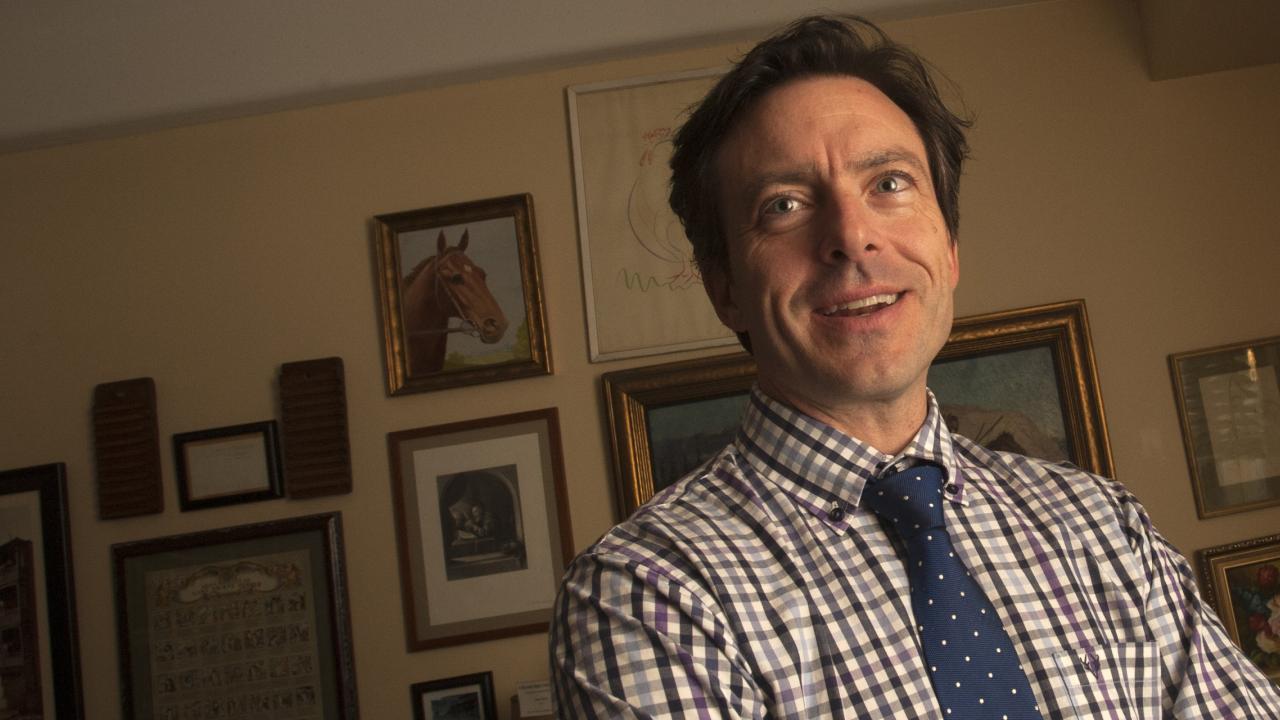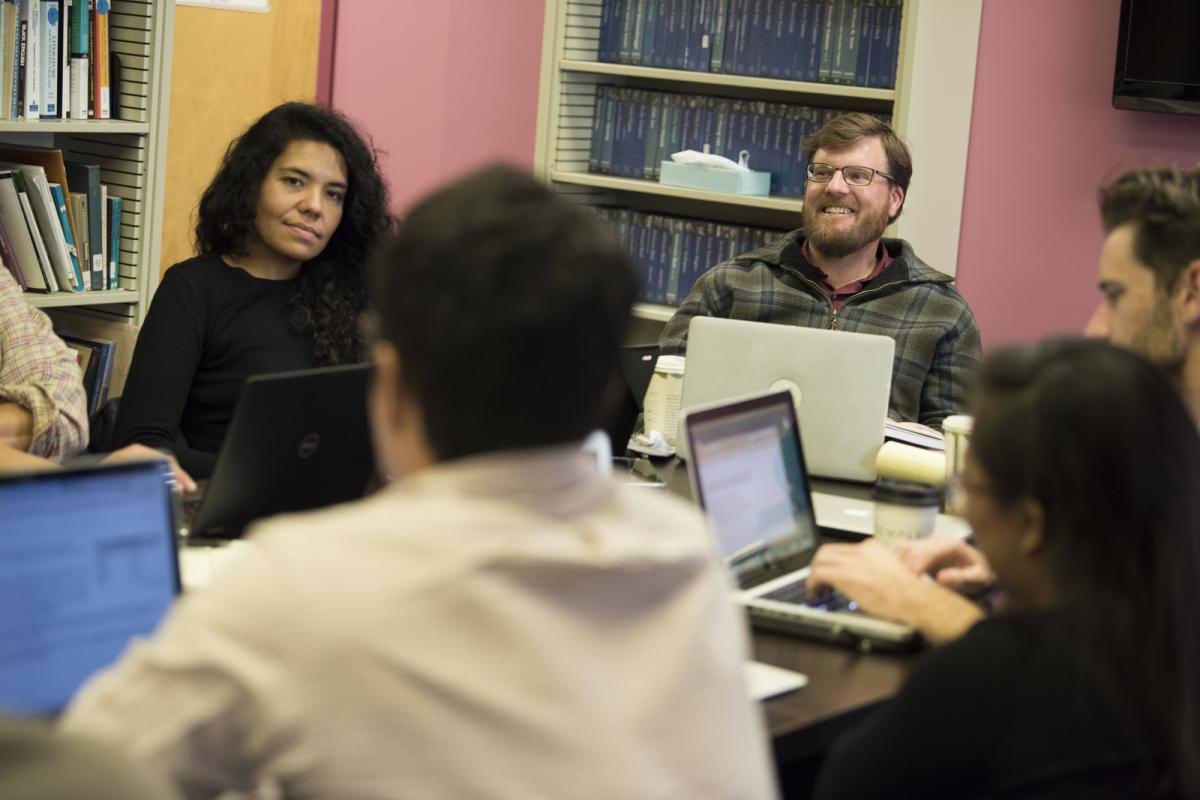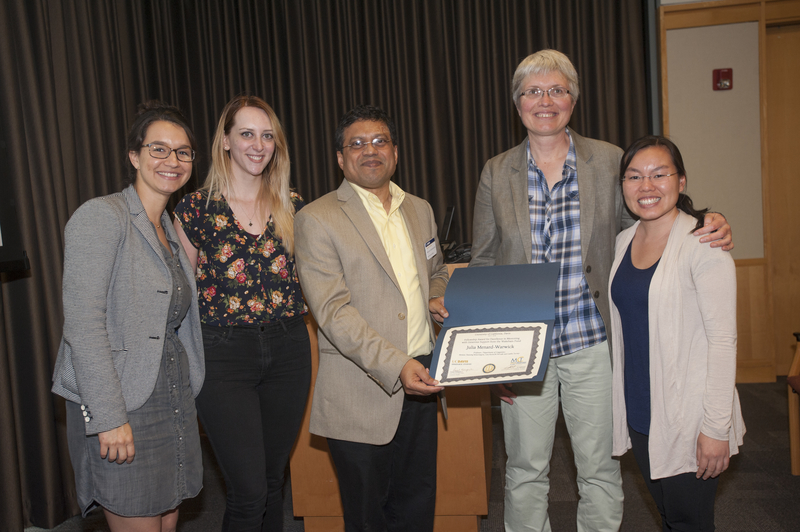
Two UC Davis Humanities Professors Recognized for Pioneering Mentorship Models
Pictured above: John Slater,Vice Chair of the Department of Spanish and Portuguese and Associate Professor of Spanish
For all its rewards, studying the humanities can be a solitary endeavor. John Slater, Associate Professor of Spanish at University of California Davis, cites dissertation writing as the prime example.
“Essentially we say, ‘you've written a great proposal; now come back in a year or 18 months or two years and have 300 pages written,” Slater said. The process can leave students feeling trapped in library archives, pursuing complex humanistic inquiry all on their own.
“There aren't that many environments in which humanities students and faculty are meeting as fellow experts in the field, where both have expertise and are working on a shared project,” Slater said.
It’s an old model, and in light of an increasingly diverse demographic of Ph.D. candidates and a widening non-academic job market, Slater says it’s high time for change.
He’s one UC Davis professor who is pioneering models of mentorship for the humanities. Both he and Michael Ziser, an Associate Professor of English, were awarded $10,000 Mentoring at Critical Transitions Wakeham Fellowships. They’re helping their students get an edge on the job market, publish their pedagogy— and feel a little less isolated along the way.
Slater’s project addresses the critical moment of landing a first job in academia. But it could also set students down a pedagogical path to securing tenure.
“We’ll often get asked the same question during an interview: How does your research affect your teaching?,” Slater said. Together, he and five graduate students in Early Modern Hispanic Studies will prepare publication-ready pedagogical editions of seventeenth-century texts. They’ll meet weekly, occasionally over a meal, and invite to campus three scholars who have differentiated themselves by publishing pedagogical editions.

Though the students work independently, meeting weekly is a sure way to build relationships. “Graduate students in Spanish work as associate instructors and almost never as Teacher’s Assistants,” Slater wrote in his MCT application. “Spanish literary and cultural studies are also single-author publishing disciplines, meaning that students and faculty tend not to have collective research projects that lead to natural collaboration.”
For Rebeca Rubio, a fifth-year Ph.D. candidate in Spanish, that collaboration was not only a “fun and relieving” change from typical academic work, but helped her feel welcome far from home. She’s from a small town near Madrid, Spain.
Although Slater’s expertise is slightly different than hers, “he had the tools and willingness to help,” Rubio said. “Knowing that you have someone receptive to your ideas — who wants to help you — that’s really nice.”
Ziser’s project uses a bi-weekly group model for the same reasoning. With the help of students and faculty from multiple departments, he plans to explore the job market in the new, interdisciplinary field of Environmental Humanities.
Also known as Ecocriticism and encompassing academics from English, geography, history and more, the superdiscipline is so new that the academe only came up with a term for it about three years ago, Ziser said.

“The idea is to start harvesting the lessons that we’ve learned about this amorphous market and see if we can’t come up with something like a guide book for students,” Ziser explained. The MCT Fellowship will also fund a summer dissertation research retreat for students at the job-market phase, as well as guest lectures and workshops from administrative leaders in the field.
Ziser will be learning right alongside his students, trying to better understand the environmental humanities’ “Alt-Ac track” — the job market outside of traditional academia. As someone who pursued only teaching, he admits he can’t rely on his own experience to guide students into other industries. Past environmental humanities students have pursued everything from grant writing to creative writing.
Part of the openness to different career paths has to do with changing admissions attitudes, Ziser said.
“We ask ourselves, is our job to be a junior ivy league? Or, is our job to take first-generation students coming from state schools who’ve made themselves competitive through grades and hard work?” Ziser said. “The horizon of someone who went to community college and worked their way up through a state school is wider. They might be excited to teach at a school like they went to.”
To successfully mentor students in finding a job, Ziser said he’s making learning his job: “Everyone likes to think of a professor as a know-it-all, but the reality is that we can be ill-equipped to advise on this changing job market. Sometimes we need to step back and inform ourselves.”
About Mentoring at Critical Transitions
The Mentoring at Critical Transitions (MCT) Program is a seminar series and fellowship program offered by Graduate Studies to enhance the preparedness of UC Davis faculty in areas affecting the mentoring, academic socialization, and overall success of our diverse graduate student population during the three critical graduate school transitions
- from admission to graduate student,
- coursework through the qualifying examination, and
- research and writing to professional career.
For information on the MCT seminar series and fellowship program, visit the Mentoring at Critical Transitions page. Additional resources for faculty mentors and students mentees can be found on our Faculty-Student Mentoring page.
